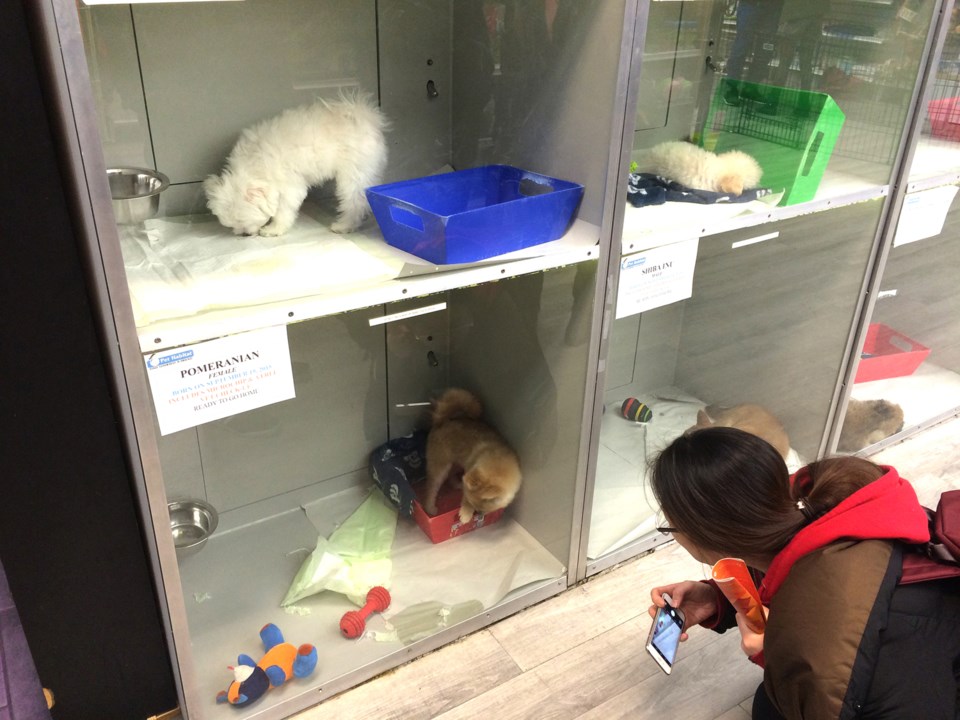Burnaby residents looking to add a new four-legged friend to their family won’t be able to buy one in a pet store in the future.
Council is considering amending three related bylaws that would prohibit selling cats and dogs. Only adoptions from shelters or rescue programs will be permitted.
Businesses will still be able to sell cats and dogs if they provide proof that the animals are from a municipal animal shelter, or an animal shelter or rescue organization that is a registered charity or society registered under the B.C. Societies Act. Store owners will only be allowed to charge an adoption fee that covers veterinary expenses and the cost of caring for the animal while in their care.
The last retail pet store in Burnaby shut down in 2017, making this a good time to put a law into place, Mayor Derek Corrigan said at a council meeting this week.
“I think it’s opportune. We don’t have any businesses that are doing this in the city now,” he said. “But, from now on, people who do start up pet store businesses will have very clear rules that indicate that the sale of dogs and cats will not be permitted.
“I think we will continue to encourage that those pet stores can continue to be involved in placing rescue animals, and offering opportunities for verified breeders to be in contact with people.”
Coun. Dan Johnston said there were other places people could find pets, and this bylaw could prevent puppy and cat mills from springing up in the city.
“There are more than a lot of opportunities within Metro Vancouver to obtain dogs, cats, through rescue centres, private breeders, there’s various opportunities to get healthy dogs and cats,” he said. “This gets rid of the potential for dog and cat puppy mills, cat mills, and potential neglect of cats and dogs.”
Other cities have banned the sales of cats and dogs as well, including New Westminster (2012), Richmond (2010), Vancouver (2017), and Delta (2017). Some of these allow stores to facilitate adoptions through partnerships with shelters.
There are currently 15 businesses that sell animal-related goods, including six that sell small animals, and four that provide adoption services through animal rescue organizations, according to a staff report.



